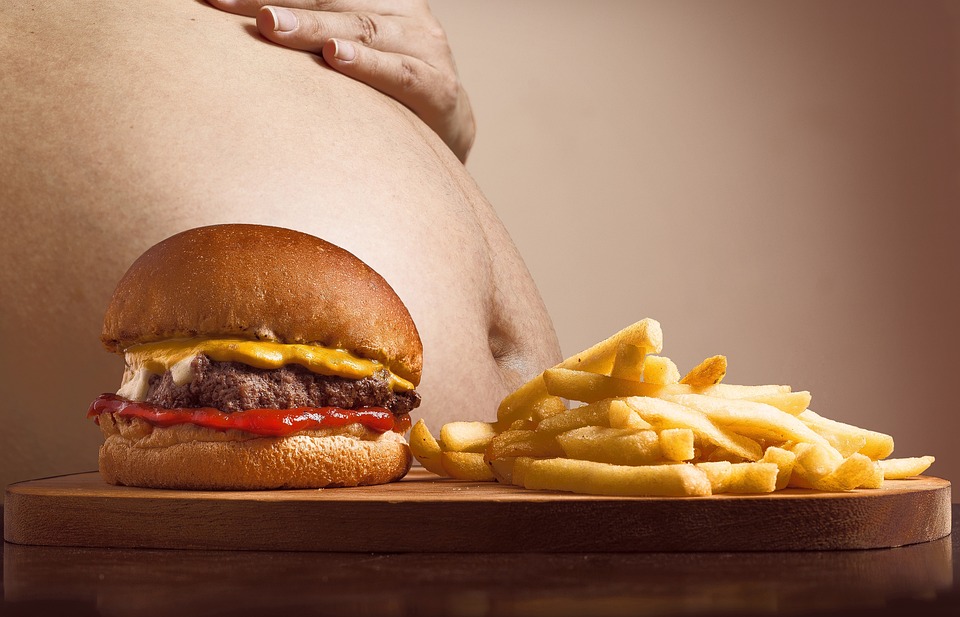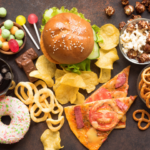A healthy diet should be maintained to maintain good health and prevent illness. However, there are several myths about the foods we eat, many rooted in childhood preconceptions. These misconceptions are often fueled by our own thoughts about what we know or by others around us. For that reason, we may hesitate to question their validity.
Worry not, as this article will help you by clearing up some popular dietary misconceptions and encouraging a healthy lifestyle. By clearing these misconceptions, we can avoid poor eating habits and negative health outcomes. Continue reading to know more.
A. Misconception #1: All fat is bad for you
One of the most frequent dietary fallacies is that all fat is bad for you. There are different types of fats, some of which are beneficial to our health. Mandy EnrightA licensed dietitian and nutritionist, says that “fat supports brain function, vitamin absorption, hormone production and skin health.”
Trans fats and saturated fats, for example, can increase our risk of heart disease and other health concerns. These fats are common in processed foods, fried foods, and animal products.
On the other hand healthy fats, such as monounsaturated and polyunsaturated fats, are essential for our general health. These fats can help lower cholesterol, reduce inflammation, and boost brain function. Nuts, seeds, avocados, fatty seafood and olive oil are all sources of healthy fats.
Adding healthy fats to our diet can provide several benefits. Consuming enough healthy fats, for example, can help us feel fuller for longer, making us less likely to overeat or nibble on bad foods. Including healthy fats in our diet can also benefit brain health, reduce the risk of cognitive decline and promote emotional well-being.
It is important to remember that although healthy fats are good for us, they are also heavy in calories. Consequently, it is essential to consume them in moderation as part of a balanced diet.
Learn these natural remedies to manage diabetes as soon as possible, here.
B. Misconception #2: Carbohydrates should be avoided
Carbohydrates are an essential macronutrient for our body’s energy and general well-being. “Carbohydrates are your body’s fuel,” says the registered dietitian Lisa Young“And having the right types and amounts is important for optimal health.”
It is common to believe that all carbohydrates are bad and should be avoided. However, carbohydrates are classified into two types: simple and complex. Sugar, honey and fruit are examples of simple carbohydrates. These carbohydrates provide instant energy but are not particularly satisfying and can induce a spike in blood sugar.
Carbohydrates are an essential part of a balanced diet because they give us energy to get through the day. Carbohydrates, in fact, should account for a significant amount of our daily calorie intake. However, it is important to choose whole grains and vegetables as healthy carbohydrate sources over refined or processed carbohydrate sources such as white bread and pastries.
In addition to providing energy, carbohydrates play an important role in supporting our brain function and helping our bodies recover after exercise. Therefore, it is important to include carbohydrates as part of a balanced, balanced diet.
C. Misconception #3: Supplements can replace a healthy diet
A common misconception about nutrition is the belief that supplements can replace a healthy diet. Although supplements can provide a convenient way to meet our nutritional needs, they should not be considered a substitute for whole, nutritious foods.
Credit: Pixabay
Research shows that over 50% of adults report supplement use. But it’s important to understand that supplements are designed to add to the nutrients we’re already getting from our food. For example, taking a multivitamin can help ensure we are getting a range of essential vitamins and minerals. Still, it’s important to remember that supplements can’t provide all the benefits of whole foods.
Therefore, while supplements can be an excellent addition to a healthy diet, it is best to prioritize getting nutrients from whole, nutritious foods whenever possible. Supplements are effective in filling the nutritional gaps in our diet.
But they should never replace a balanced, whole-food diet. Whenever possible, try to get your nutrition from real food sources. By doing this, you will be doing your body a favor by providing it with the essential nutrients it needs to thrive.
Here’s how supplements can help you lose weight.
D. Misconception #4: Eating late at night causes weight gain
A frequent diet misconception is that eating late at night increases the risk of weight gain. However, there is no scientific evidence to support this idea. The overall amount of calories consumed throughout the day affects weight gain or loss, regardless of the time of day.
Although eating a large meal before bed can cause pain or disrupt sleep, eating late is not inherently harmful or directly related to weight gain. What matters most is the quantity and quality of food eaten during the day.
E. Misconception #5: Eating healthy is expensive
Another widespread nutrition myth is that eating healthily is expensive. While some nutritious foods may be more expensive than processed or unhealthy alternatives, budget-friendly healthy food choices are widely accessible.
Oatmeal or porridge, eggs, canned beans, and frozen vegetables are examples of low-cost healthy foods. Oats can offer several servings of a healthy breakfast option, while eggs are a flexible and affordable source of protein. Canned beans are rich in protein and fiber and can be used in salads, soups and other dishes. Frozen vegetables are often less expensive than fresh ones and can supplement meals with additional nutrients.
Don’t let the cost of nutrition stop you from prioritizing your overall health and wellness. Choose from a range of nutritious, low-cost options.
F. Misconception #6: Breakfast is the most important meal of the day
Another misconception is that breakfast is the most important meal of the day. Although breakfast can be a great source of energy and nutrition for some people, its importance has been overstated. What is essential is to maintain a balanced and varied diet throughout the day, including nutrient-packed foods such as fruits, vegetables, whole grains, lean proteins and healthy fats.
Skipping breakfast can be a viable option for people who don’t feel hungry in the morning or who do intermittent fasting. On the other hand, for those who need food to maintain energy levels and concentration throughout the day, breakfast can be very important.
The key to optimal health is finding a holistic and individualized approach to nutrition that works for you. This may mean eating breakfast or skipping it. However, the most important thing is to eat an overall healthy and nutrient-dense diet to achieve and maintain wellness.
Finally,
In the world of nutrition, there are many myths that can hinder our ability to maintain a healthy diet. Beliefs such as “all fat is unhealthy,” “carbohydrates should be avoided,” and “supplements can replace a healthy diet” can result in poor eating habits and negative health. Dispelling these misconceptions and focusing on eating a balanced, varied diet with healthy carbohydrates and fats, whole, nutrient-packed foods, and inexpensive alternatives is essential to improving your lifestyle and avoiding the negative consequences of poor food choices.
Eating late at night does not directly increase weight. A balanced diet distributed during the day is better than eating at night. There is no basis for concluding that healthy food is more expensive than unhealthy food. By prioritizing your health and wellness, and choosing a healthy and nutrient-dense diet, you will achieve a healthy and fulfilling lifestyle.















